Cities have emptied, people have been locked in their homes, global transportation has ground to a halt, and work has changed character. But what has changed in three years, and what has remained the same?
What changed
There are more bicycles
Covid-19 has proven to be devastating to people’s psychology due to extensive and prolonged restrictions. However, if anything positive has come out of all this, it is that the world has turned to pedals and to governments to strengthen infrastructure for bicycles.
One of the cities that stood out in this area was Milan, where, after a month of lockdown, the municipality presented a plan to reconfigure a 35-kilometer road for walking and cycling. The mayor of Paris strongly supported the initiative, and 40 km of bicycle paths were even laid in Brussels. In many areas, however, the unusual nature of these lanes proved to be permanent.
Changing public spaces
The dispersal of seating in bars and restaurants in squares, sidewalks, streets and parks to avoid indoor crowding has redefined the use of public spaces.
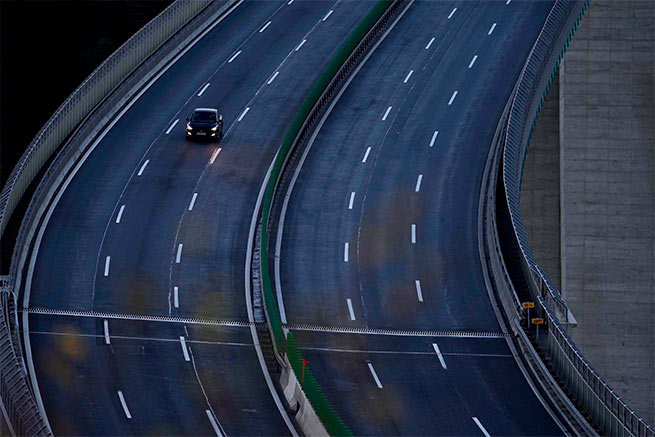
As lockdowns forced traffic restrictions, Europe’s major cities breathed a sigh of relief and nitrogen dioxide levels plummeted – Source: AP
In Paris, many streets have been turned into pedestrian areas, and three city groves are under construction. In Brussels, as part of the city’s Good Living program, sidewalks have been expanded, with at least 10-15% of all sidewalks set aside for plants and trees.
In terms of focus, some districts have decided to return to pre-crisis store layouts, while others, such as Barcelona and Pamplona, have made the “tables outside” plan permanent, which, however, has drawn backlash from many citizens for using the pandemic as a an alibi for the privatization of public spaces.
Work culture
The work culture has experienced a real revolution due to the pandemic, which in many cases has even taken hold. According to real estate company Colliers, only 31% of jobs in EMEA (Europe, Middle East and Africa) are maxed out.
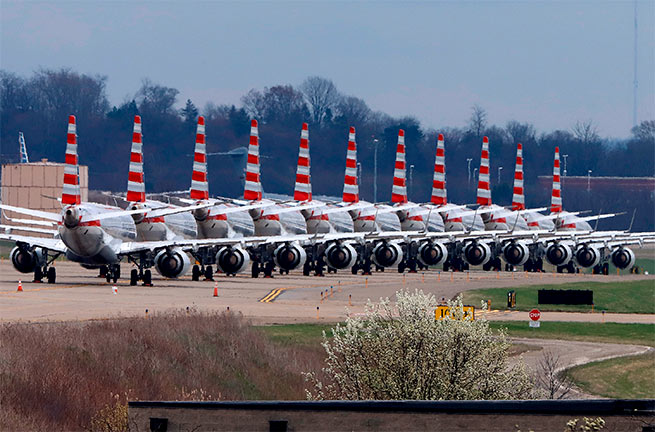
An American Airlines plane parked at Pittsburgh International Airport. According to the American company, it suffered a loss of $2.24 billion in the first quarter of 2020 due to a sharp reduction in traffic – Source: AP
In Brussels, where 97% of companies offer the option to work from home, a quarter of workers say they go to the office mainly to save energy. However, changes in the way we work and transport have proven disastrous for businesses that have relied on working customers.
Improved ventilation
Good ventilation has become a key public health issue during the pandemic, and some governments have chosen to keep the change going. In Belgium, for example, a new law effective from July requires public spaces to have CO2 indicators, and from 2025 they will need to have air quality certificates.
Better ventilation can have many health benefits, according to a recent study, as indoor air pollution harms the health of millions of European Union citizens.
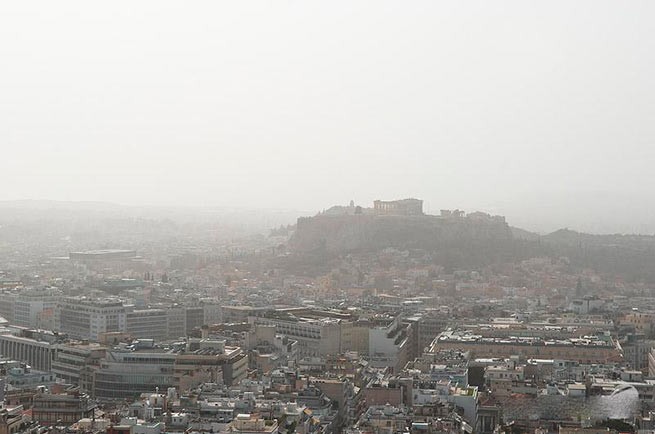
Smog over Athens. Photo by Pavel Onoiko.
What remains the same
Traffic and pollution
As lockdowns forced traffic restrictions, Europe’s major cities breathed a sigh of relief as nitrogen dioxide levels, mostly from road transport, plummeted and the atmosphere cleared. However, the reduced pollution was not to remain as life returned to normal, as did traffic on the roads.
housing crisis
Even before the pandemic, Europe was facing a deep housing crisis. Between 2010 and 2021, real estate prices in the European Union increased by 37%, rents by 16%. Although prices fell in the first year of the pandemic, the decline proved to be temporary and limited to major cities.
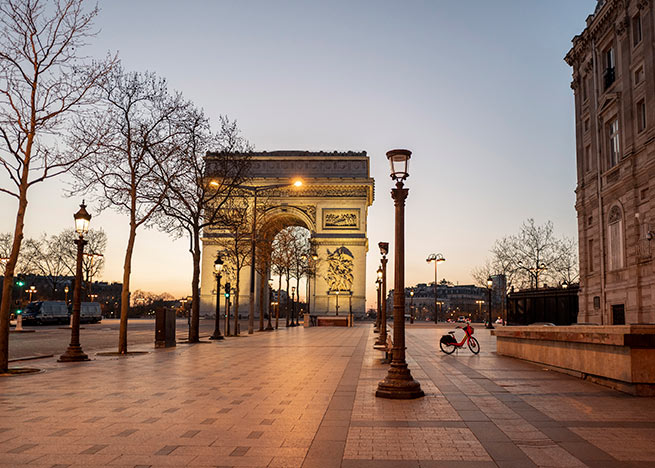
The Champs-Elysées, one of the most touristic places in the City of Light, is closed due to quarantine March 20, 2021 – Source: AR
The cost of living and the energy crisis triggered by Russia’s invasion of Ukraine in February 2022 have exacerbated the impact on households, who in many cases struggle to make ends meet paying housing and utility bills.
Travel Normalization
The gradual resumption of travel, even before the end of the pandemic, introduced a new term into the international lexicon – “revenge tourism”. This concept is not liked by many, given that it should not characterize travel, but is used to describe the coverage of lost positions due to the pandemic.
By 2021, while Europe was still in a quagmire of green passes, vaccination certificates and signed documents, overnight stays in tourist destinations were two-thirds of pre-pandemic levels, according to Eurostat, but in the first half of 2022 overnight stays jumped again by 86% compared to the pre-pandemic number.
social distancing
Social distancing – a mandatory series of measures to maintain distance between citizens in order to, if not stop, then at least slow down the spread of the virus – was one of the main recommendations of the health authorities.
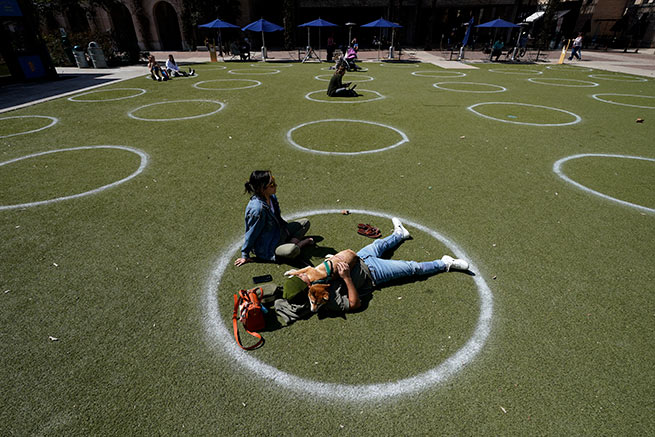
A couple and their dog inside a white circle, marked by local authorities as part of social distancing measures, in San Antonio Park. Source: A.P.
A distance of at least 1.5 meters between people in shops and public places has entailed strict measures in public transport as well as in public buildings.
This measure has failed in many cases, especially in vehicles where crossbreeding could not be avoided, although three years later and after several doses of the vaccine it seems like a distant memory.
Source: Politiko
PS To the above, one could add another important and negative factor that the pandemic brought – the number of suicides in Greece increased by 25%and an increase in crime by at least 50%, but you will not see these figures in the reports of the Ministry of Internal Affairs, since before the elections everything should be “beautiful” …
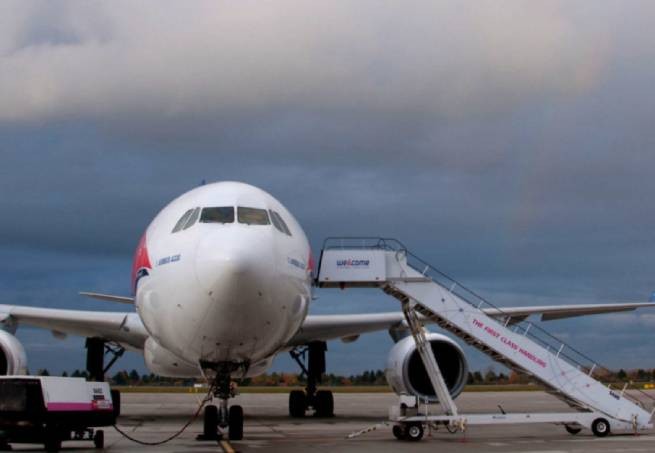


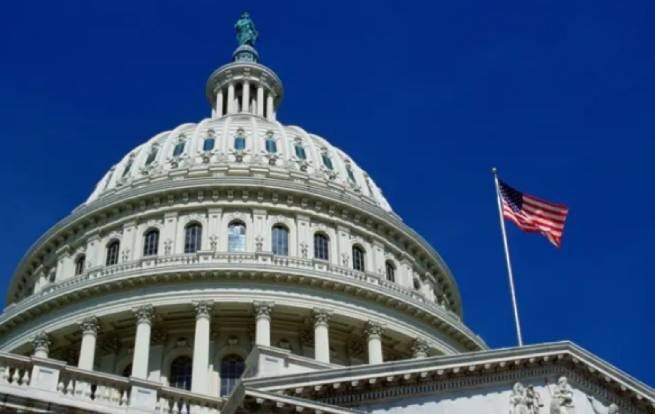



More Stories
Shocking report from Japanese scientists: “Cancer deaths increase sharply after mass Covid vaccination”
Study: Scientists have discovered why children are more susceptible to coronavirus
22 arrests and confiscations took place in Italy and other EU countries in the case of "covid" EU funds (video)